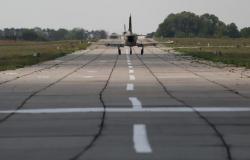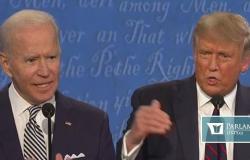In pre-war 2021, 46 percent of EU natural gas imports came from Russia, according to the Center for Energy and Clean Air Research (CREA). During the war, this share dropped significantly to 24 percent in 2022 and sixteen percent last year. However, unlike oil and coal, the EU has not imposed any sanctions on the raw material, and the decline is mainly due to Russian restrictions and explosions of the Nord Stream gas pipeline.
Some EU countries are therefore not reluctant to buy gas in liquefied form from the aggressor. Last year, the twenty-seventh country imported thirteen percent of LNG from Russia, which corresponded to five percent of all natural gas consumption. At the same time, according to S&P Global, consumption is rather increasing. In the first four months of this year, the warring country delivered 4.9 million tons of LNG to Europe, i.e. sixteen percent of its imports.
This practice arouses increasing opposition from some states. Sweden would like to include the embargo on the import of Russian LNG in the next EU sanctions package. Earlier, Poland and the Baltic states also called for this. However, the EU Agency for the Cooperation of Energy Regulatory Authorities (ACER) urges caution.
Billions of Euros for the war effort
Especially considering the unpredictability of the weather and the fact that Moscow’s gas transit contract with Kyiv will expire at the end of the year, making further supplies via this route uncertain. If a way is not found to continue to get gas through Ukraine to countries that are interested in it, the EU will lose roughly fourteen billion cubic meters of raw material per year, according to the regulator. “The reduction of Russian LNG imports should be considered in gradual steps,” the authority said, according to the Financial Times.
Similar arguments are also made by large customers who claim that they need liquefied gas from this source for households and industry. The website Politico reported that at least nine EU countries are buying it. At their head is France, which, according to Politika sources, has spent 8.7 billion euros on Russian LNG since the beginning of the war. Belgium paid 7.7 billion for him and Spain 7.5 billion.
“If Europe is still importing LNG from Russia, it is because it is needed,” an unnamed French gas trader believes, according to S&P Global. “With our major suppliers such as Norway operating at maximum capacity, it will be difficult to completely stop the flow of Russian LNG. We are still not completely out of the crisis,” he added.
But critics of the imports point out that fossil fuel exports remain an important source of funding for the Kremlin’s war effort. And they remind us that the reluctance to stop these flows contradicts the sharp tone that French President Emmanuel Macron has recently taken against Moscow. “It cannot be the case that France is encouraging us to be tough on Russia on the one hand and paying it a lot of money on the other,” one EU diplomat told Politico on condition of anonymity.
The Arctic project is threatened by US sanctions
It is believed that the government in Paris is under pressure from TotalEnergies, which has gas contracts with Russia and stakes in LNG mining projects in the Arctic region. Partly directly, partly through the company Novatek, of which he owns a fifth.
In this direction, it was already complicated by the American sanctions that Washington introduced in the fall on the giant Arctic LNG 2 project on the Gyda Peninsula. The French firm said in January that it would act in accordance with the sanctions in force, citing force majeure. “As a result, there is no planned LNG offtake from Arctic LNG 2 by TotalEnergies in 2024,” she said.
And Novatek, which promised itself that the Arctic project would ensure the production of almost twenty million tons of liquefied gas per year, got into trouble. The first operation at the site began in December, and the next two are scheduled to start next year and in 2026, respectively. The United States, however, hopes that the sanctions will slow down development. Because of them, Russia cannot use special large tankers to transport raw materials. Companies from South Korea and Japan will not deliver the promised vessels, according to The Wall Street Journal.
Production stopped again due to the impossibility of export, several sources claim. Russia is trying to build tankers at home, but apparently also faces complications in the supply of components. Experts expect that it will be difficult for the Russians to complete the other two operations. They probably succeeded in the first one mainly because a lot of the work was done before the invasion. According to Reuters, Novatek can redirect its attention to the development of the Murmansk project, since it would not need the shortage of tankers suitable for ice regions to export from the Barents Sea.







